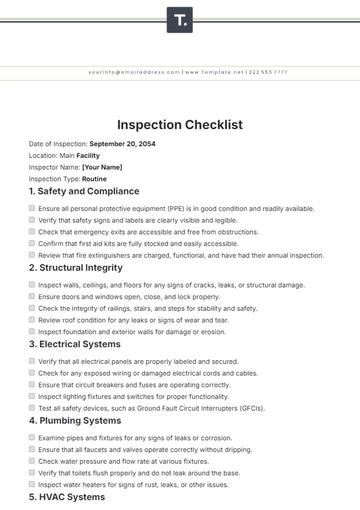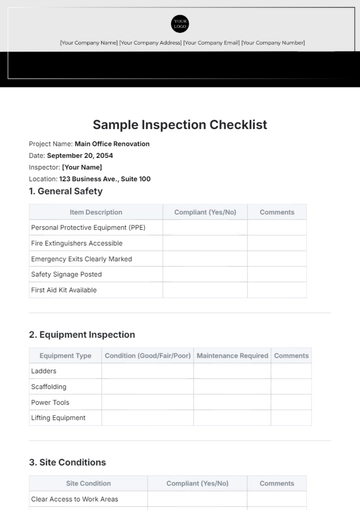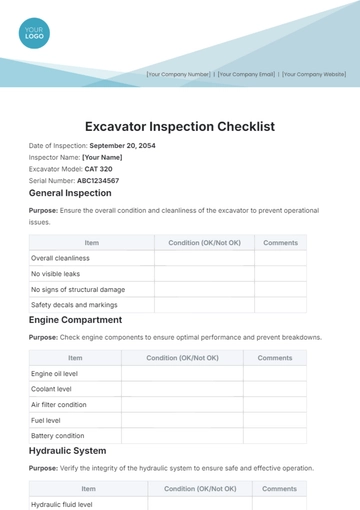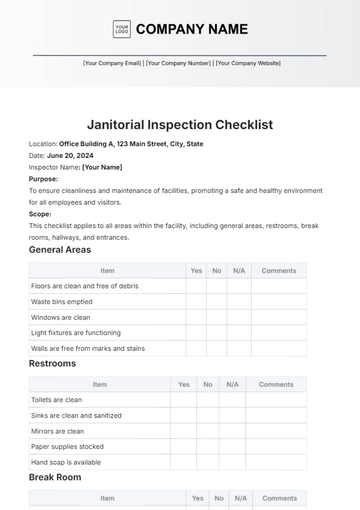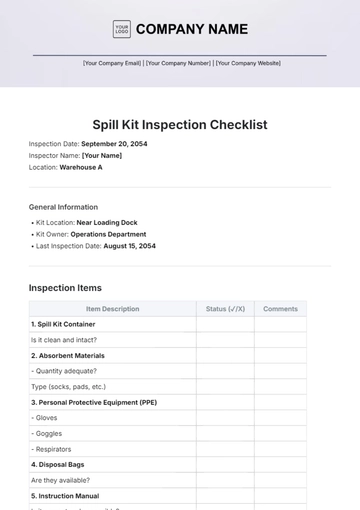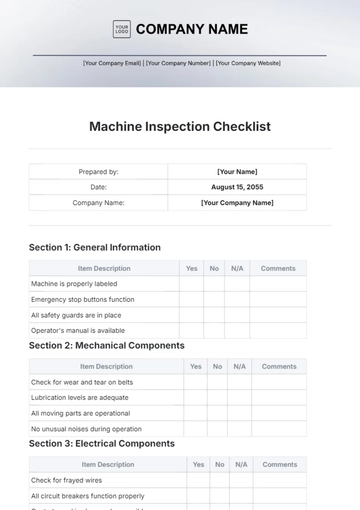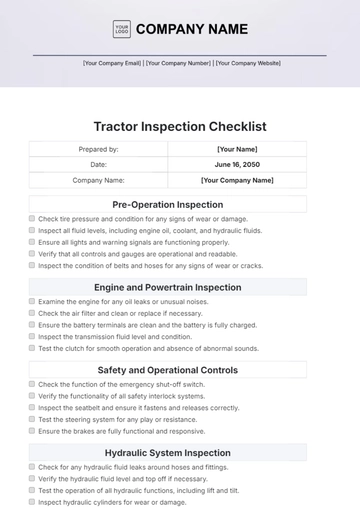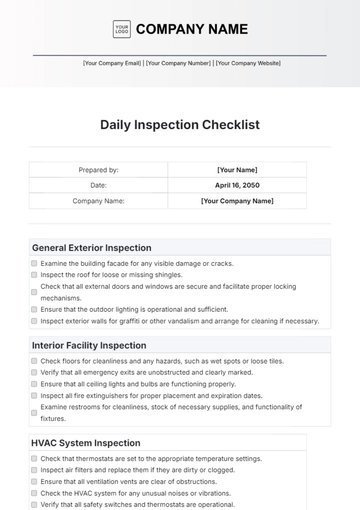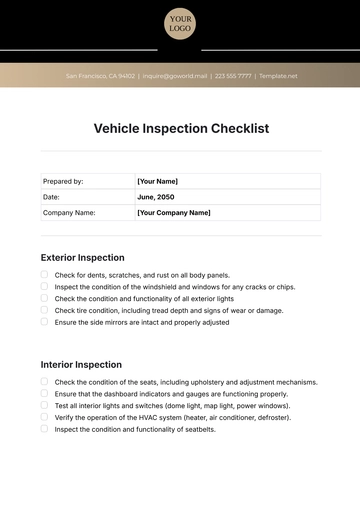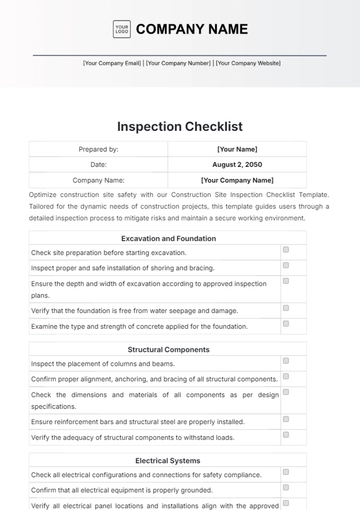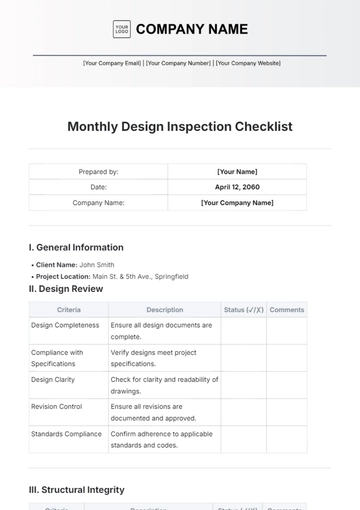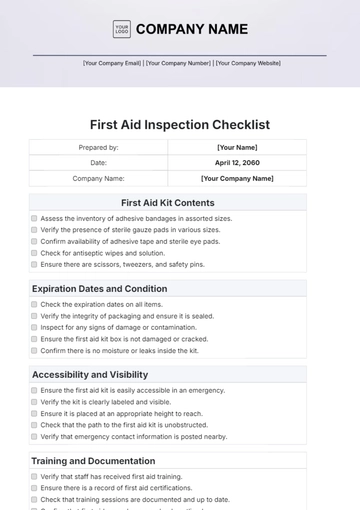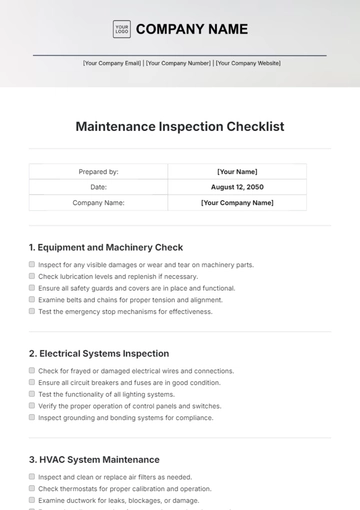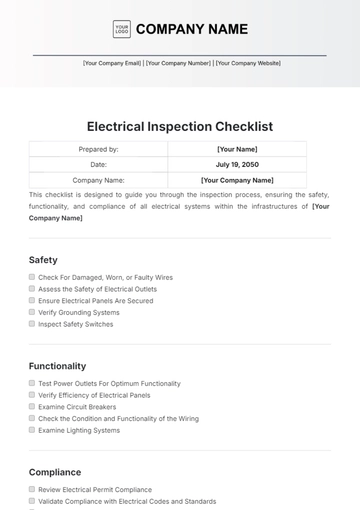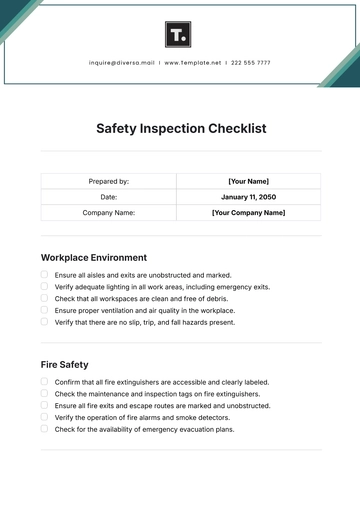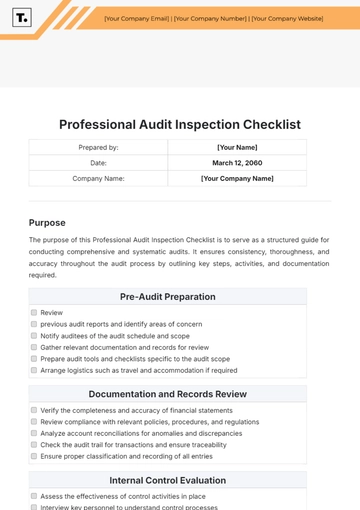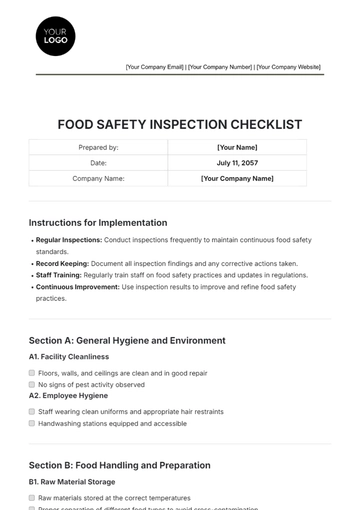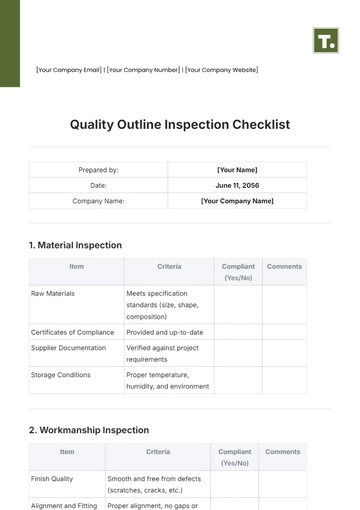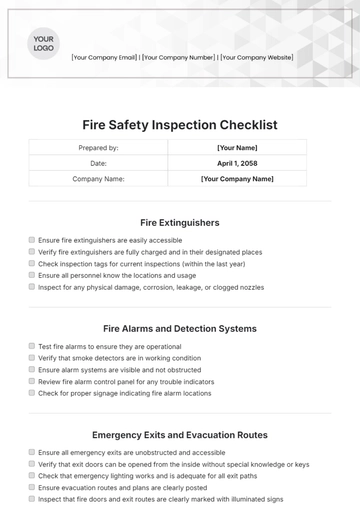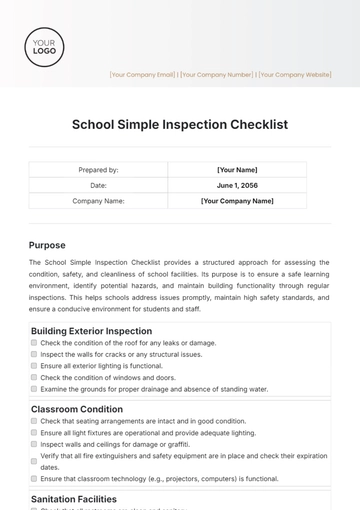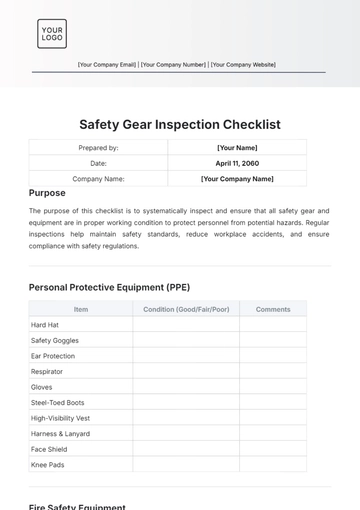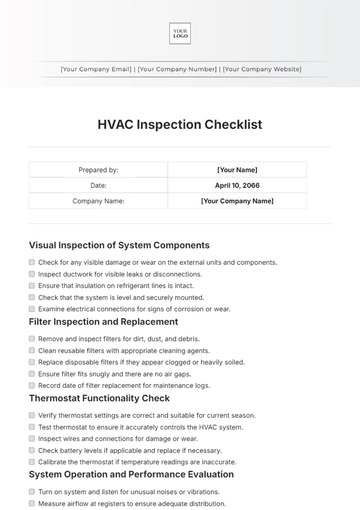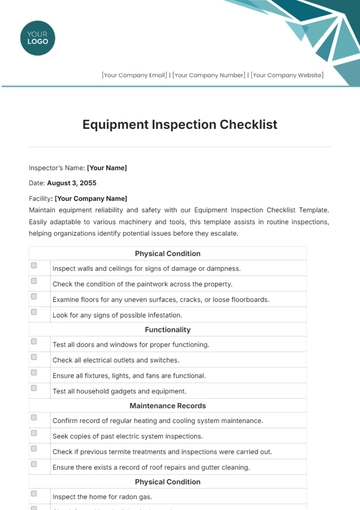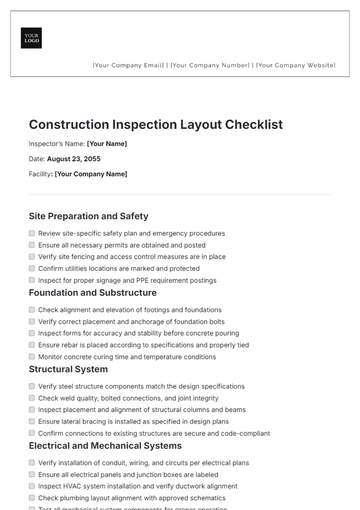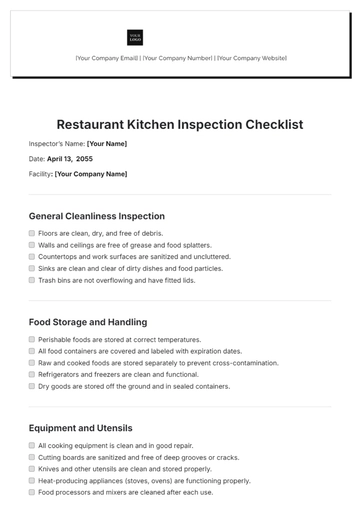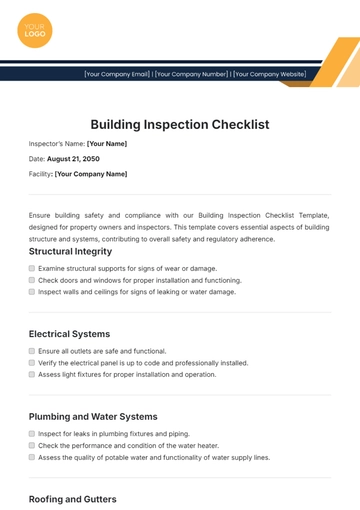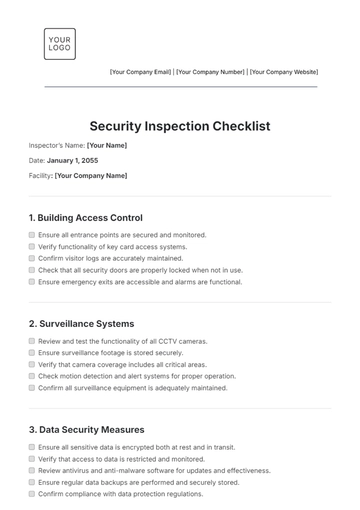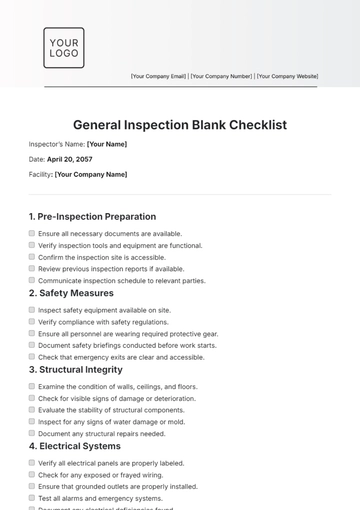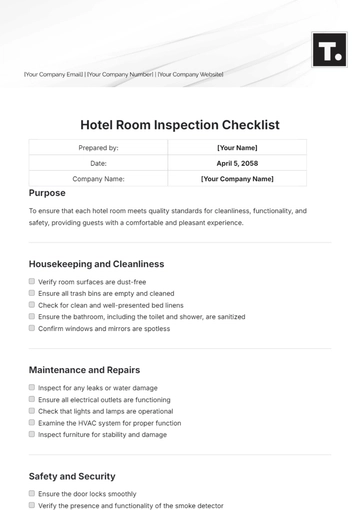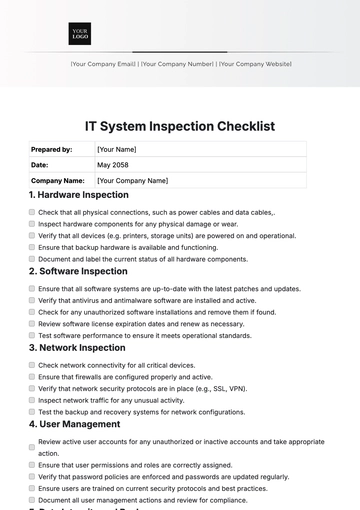Free Property Manager Inspection Checklist
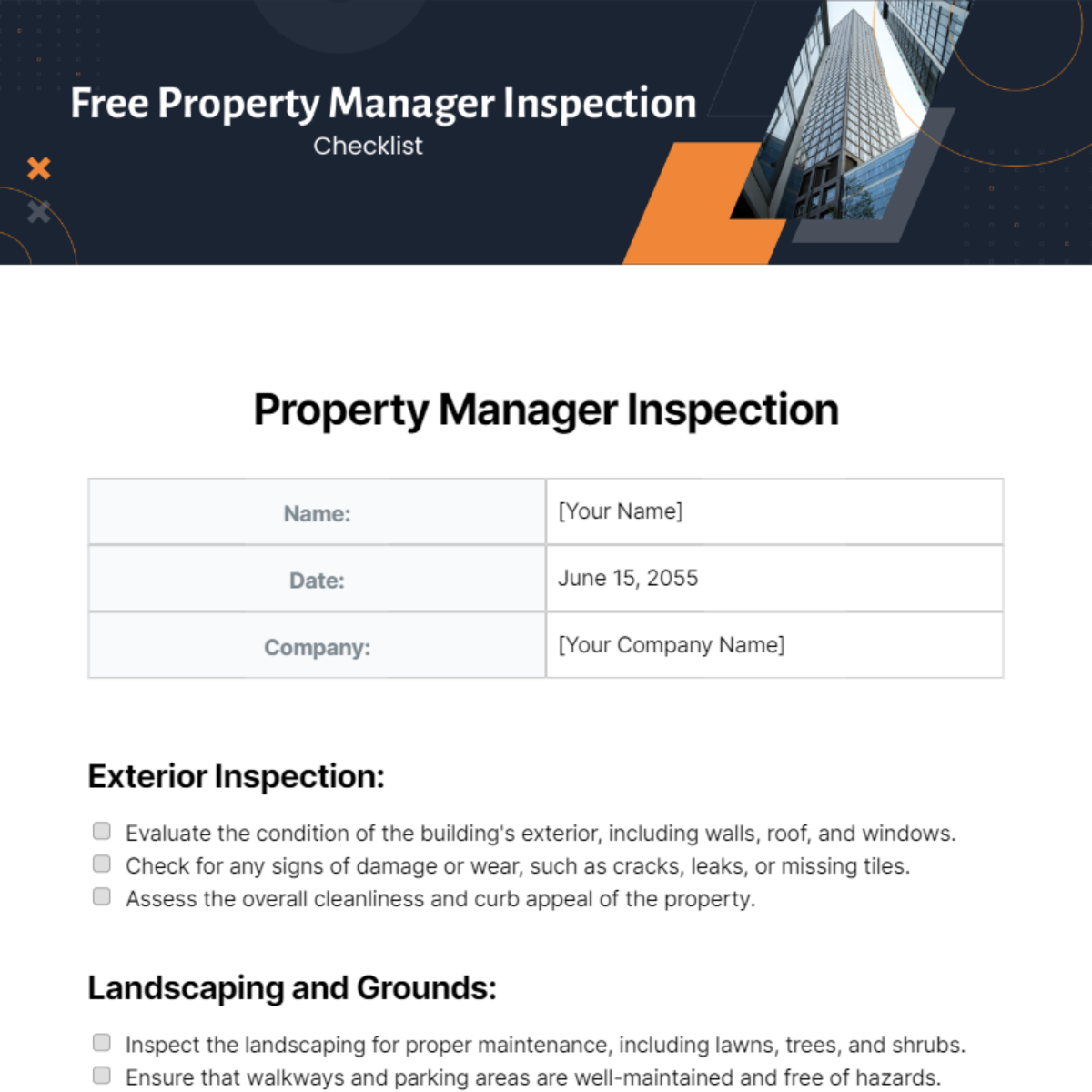
Name: | [Your Name] |
|---|---|
Date: | June 15, 2055 |
Company: | [Your Company Name] |
Exterior Inspection:
Evaluate the condition of the building's exterior, including walls, roof, and windows.
Check for any signs of damage or wear, such as cracks, leaks, or missing tiles.
Assess the overall cleanliness and curb appeal of the property.
Landscaping and Grounds:
Inspect the landscaping for proper maintenance, including lawns, trees, and shrubs.
Ensure that walkways and parking areas are well-maintained and free of hazards.
Address any issues with irrigation systems or outdoor lighting.
Common Areas:
Evaluate the cleanliness and condition of common areas, such as lobbies, hallways, and staircases.
Check for any needed repairs, such as damaged flooring or lighting issues.
Verify that safety features, like handrails and emergency exits, are in good working order.
Interior Inspection:
Assess the condition of individual units, focusing on walls, floors, and ceilings.
Check for any signs of water damage, mold, or pest infestations.
Ensure that all appliances and fixtures are in proper working condition.
Utilities and Systems:
Inspect electrical systems for functionality and safety.
Verify that heating, ventilation, and air conditioning (HVAC) systems are in good working order.
Check plumbing for leaks, proper drainage, and water pressure.
Safety Measures:
Confirm the functionality of smoke detectors and carbon monoxide alarms.
Inspect fire extinguishers and emergency exit routes for compliance with safety standards.
Ensure that any safety hazards or code violations are promptly addressed.
Appliance and Equipment Inspection:
Evaluate the condition and functionality of kitchen appliances.
Check laundry facilities and equipment, ensuring they are clean and well-maintained.
Address any repairs or replacements needed for appliances or equipment.
Security Features:
Inspect security measures such as locks, key systems, and access control.
Verify the condition of surveillance cameras and alarm systems.
Address any security concerns raised by tenants or identified during the inspection.
Tenant Communication:
Communicate inspection schedules with tenants in advance.
Encourage tenants to report any maintenance issues or concerns.
Provide a channel for feedback and address tenant inquiries or requests promptly.
Documentation and Reporting:
Document findings and observations during the inspection process.
Provide detailed reports to property owners, highlighting any necessary repairs or improvements.
Maintain organized records for future reference and compliance purposes.
Regulatory Compliance:
Ensure the property complies with local, state, and federal regulations.
Stay informed about changes in property management and housing laws.
Implement necessary adjustments to ensure ongoing compliance.
Tenant Satisfaction:
Assess tenant satisfaction and address any concerns raised during the inspection.
Solicit feedback on property management services and areas for improvement.
Proactively engage with tenants to build positive landlord-tenant relationships.
- 100% Customizable, free editor
- Access 1 Million+ Templates, photo’s & graphics
- Download or share as a template
- Click and replace photos, graphics, text, backgrounds
- Resize, crop, AI write & more
- Access advanced editor
Optimize property management with the Property Manager Inspection Checklist from Template.net. This editable and customizable template, effortlessly tailored with our Ai Editor Tool, ensures a personalized and efficient inspection routine. Elevate the managerial experience with this user-friendly checklist, designed for maximum efficiency. Customize effortlessly, ensuring comprehensive task management and successful property inspections with ease and precision.
You may also like
- Cleaning Checklist
- Daily Checklist
- Travel Checklist
- Self Care Checklist
- Risk Assessment Checklist
- Onboarding Checklist
- Quality Checklist
- Compliance Checklist
- Audit Checklist
- Registry Checklist
- HR Checklist
- Restaurant Checklist
- Checklist Layout
- Creative Checklist
- Sales Checklist
- Construction Checklist
- Task Checklist
- Professional Checklist
- Hotel Checklist
- Employee Checklist
- Moving Checklist
- Marketing Checklist
- Accounting Checklist
- Camping Checklist
- Packing Checklist
- Real Estate Checklist
- Cleaning Checklist Service
- New Employee Checklist
- Food Checklist
- Home Inspection Checklist
- Advertising Checklist
- Event Checklist
- SEO Checklist
- Assessment Checklist
- Inspection Checklist
- Baby Registry Checklist
- Induction Checklist
- Employee Training Checklist
- Medical Checklist
- Safety Checklist
- Site Checklist
- Job Checklist
- Service Checklist
- Nanny Checklist
- Building Checklist
- Work Checklist
- Office Checklist
- Training Checklist
- Website Checklist
- IT and Software Checklist
- Performance Checklist
- Project Checklist
- Startup Checklist
- Education Checklist
- Home Checklist
- School Checklist
- Maintenance Checklist
- Planning Checklist
- Manager Checklist
- Wedding Checklist
- Vehicle Checklist
- Travel Agency Checklist
- Vehicle Inspection Checklist
- Interior Design Checklist
- Backpacking Checklist
- Business Checklist
- Legal Checklist
- Nursing Home Checklist
- Weekly Checklist
- Recruitment Checklist
- Salon Checklist
- Baby Checklist
- Equipment Checklist
- Trade Show Checklist
- Party Checklist
- Hospital Bag Checklist
- Evaluation Checklist
- Agency Checklist
- First Apartment Checklist
- Hiring Checklist
- Opening Checklist
- Small Business Checklist
- Rental Checklist
- College Dorm Checklist
- New Puppy Checklist
- University Checklist
- Building Maintenance Checklist
- Work From Home Checklist
- Student Checklist
- Application Checklist
